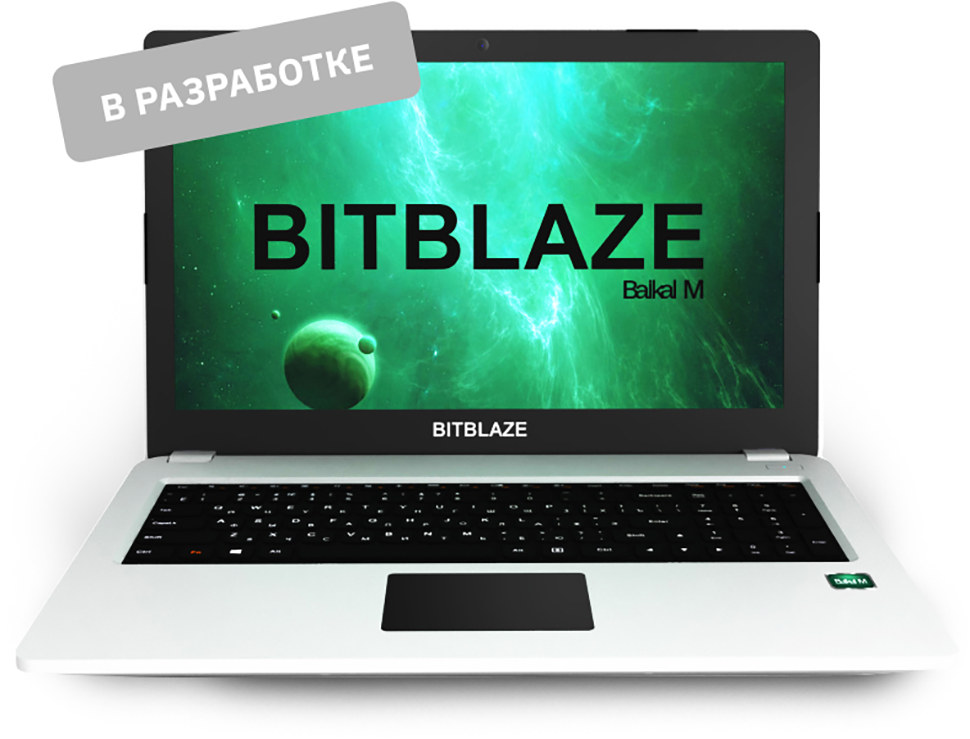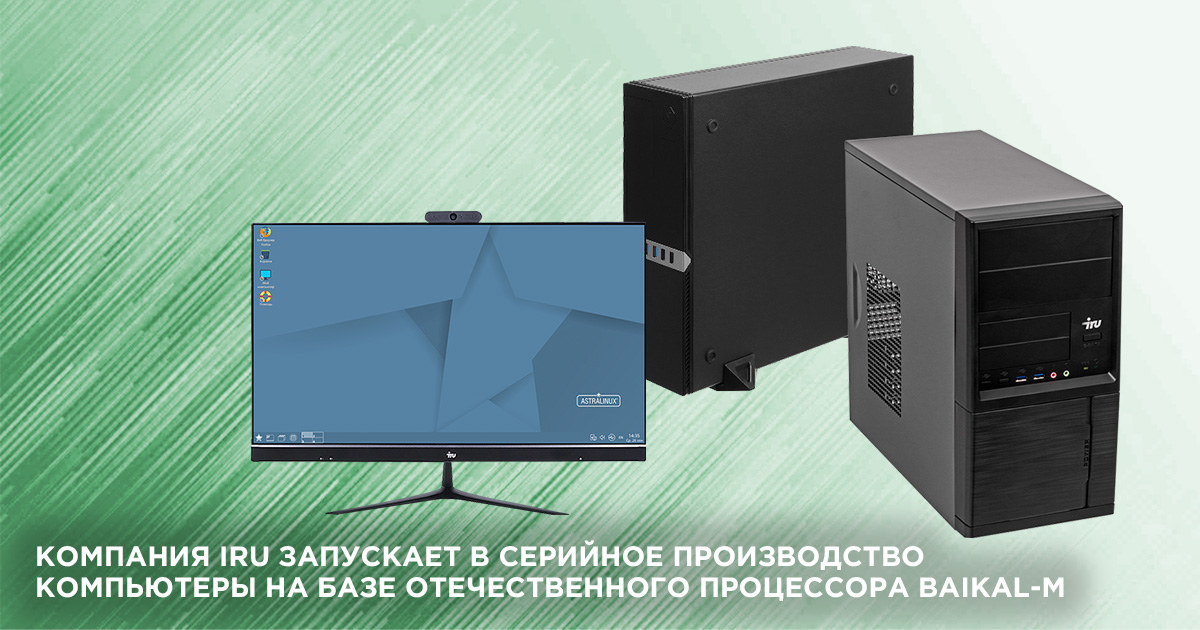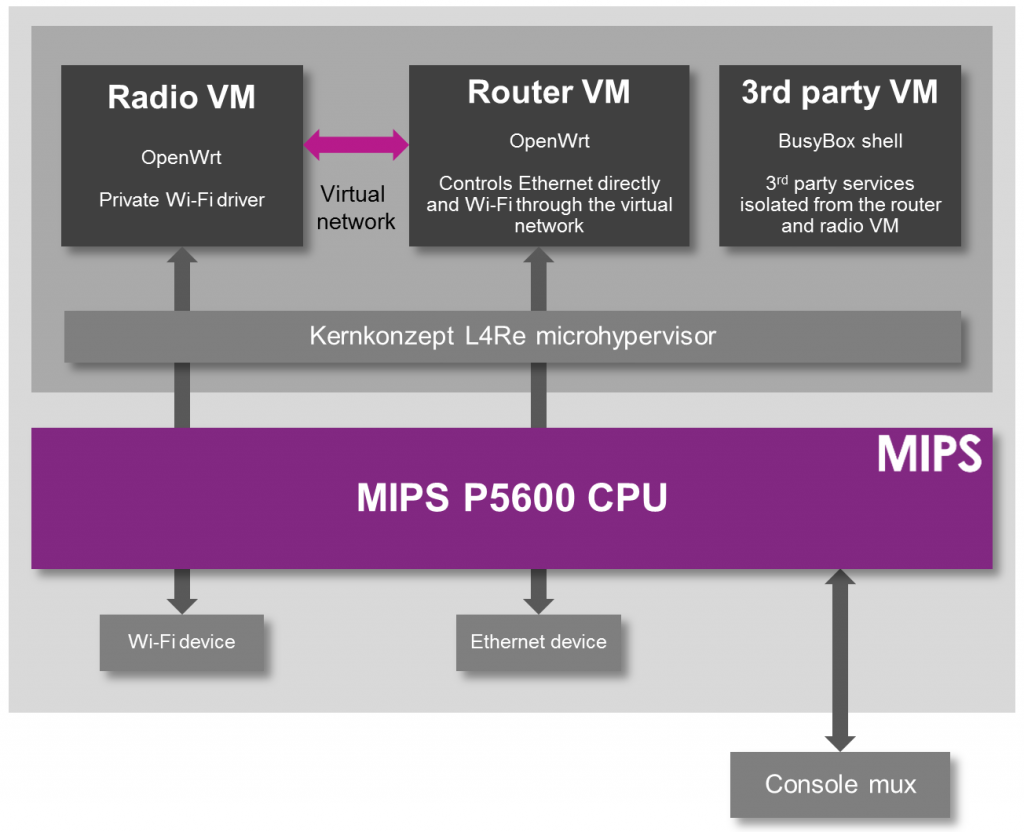Russian company Prombit has unveiled the BITBLAZE Titan BM15 Arm Linux Laptop equipped with Baikal-M1 octa-core Arm Cortex-A57 processor manufactured by TSMC, up to 128GB RAM, SSD storage, and a 15.6-inch Full HD display. Baikal-M1, also called Baikal-M, was already found in desktop PCs and All-in-One Arm Linux computers launched last year for the Russian government and businesses, but I think it’s the first time it shows up in a laptop. BITBLAZE Titan BM15 specifications: SoC – Baikal M1 ((BE-M1000) octa-core Cortex-A57 processor @ up to 1.5 GHz with Arm Mali-T628 GPU; 28nm manufacturing process System Memory – 16GB RAM, upgradeable up to 128 GB thanks to the two SO-DIMM DDR4 sockets [Update: Our previous article about Baikal M1 only showed the processor to support up to 32GB RAM, and 64GB DDR4 SO-DIMM modules don’t seem to exist, so the 128GB claim appears to be an error] Storage – 250 […]
Desktop and All-in-One Arm Linux computers launched with Baikal-M processor
The last time we wrote news about Baikal Electronics, the Russian company was offering MIPS-based processors, but they’ve now announced that several iRU-branded desktops and one all-in-one computer had been introduced with Baikal-M octa-core Cortex-A57 processor with Mali-T628 GPU, and support for up to 32GB DDR4 RAM, up to 3TB HDD. The computers target the Russian market, especially business to business (B2B) and business to government (B2G) customers, with the use of Astra Linux distribution that contains Russian “data protection tools” such as ViPNet SafeBoot, PAK Sobol, and others. iRU Opal Baikal-M Arm Linux SFF & microtower computers We’ve used to find Arm processors into really compact fanless systems, but it’s the case for iRU Opal computers with two form factors offered: SFF (Small Form Factor) and MT (Microtower). The company says the systems are offered with up to 32 GB DDR4 DIMM memory, up to 1TB SSD storage, and […]
Imagination Solution to FCC Rules for WiFi Routers: Run OpenWrt / DD-WRT and the WiFi Driver in Separate Virtual Machines
About a year ago, discussions started about new rules from the FCC that could prevent routers from installing open source third party operating systems such as OpenWrt or DDWRT. Despite the FCC assurance that the rules were meant to prevent some users from illegally tweaking the RF settings, and that it would not have to impact installing of open source alternatives, the reality is that companies such as TP-Link ended up locking their routers up due to the new rules, while Linksys would only ensure OpenWrt/ DD-WRT compatibility on some of their routers, but not all. Companies are probably doing that due to the extra work that would be required to separate the RF settings which need to be locked, and the rest of the firmware. But Imagination Technology’s prpl security group has a solution for their MIPS Warrior P-Class processors using hardware virtualization. In order to show the concept […]





